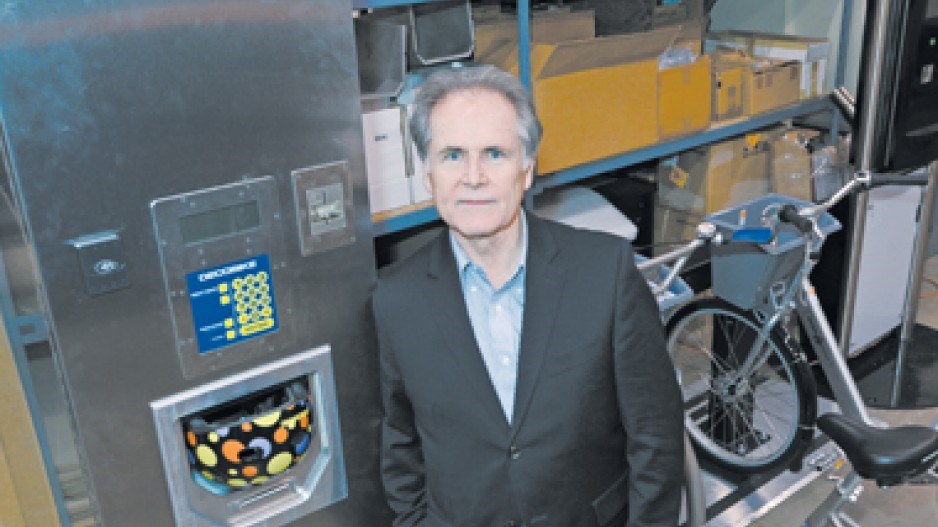A local bike-share bid was rejected in favour of a deal with Portland-based Alta Bicycle Share and Montreal’s financially troubled Bixi, Business in Vancouver has learned.
In July, the City of Vancouver approved a public bike-share program. The city plans to contract Alta as the system operator, with Bixi as the equipment provider.
It plans to spend $6 million to set the system up and $500,000 annually to support its operation.
But Vancouver is now delaying the roll-out by several months, after reports surfaced last week that Bixi’s Toronto operation faces “imminent insolvency,” according to a City of Toronto memo obtained by several newspapers.
The reports follow a $108 million bailout the City of Montreal gave to the company in 2011, $37 million of which was earmarked to cover a deficit. This September, Montreal’s auditor general also raised concerns about the company’s finances.
“The whole gist of it was to bring together groups within the Vancouver community who are able to supply the various elements of a bike-share solution, for Vancouver,” Rick Murray, owner of SandVault Group Global Solutions, said of the rejected local bid.
Like Bixi, Murray’s Richmond-based company makes bike-share docking systems, software and kiosks. SandVault has provided the equipment for bike shares in several cities, including Miami Beach, Long Beach, Oklahoma City and Sao Paulo, Brazil.
Murray claims his company’s equipment is less expensive than the Bixi system, in part because any bike can be used in SandVault docking stations. Bixi systems work only with Bixi bikes.
In 2011, SandVault partnered with a non-profit group, Bikeshare BC, to put together a bid in response to the City of Vancouver’s request for expressions of interest.
The bid included Bikeshare BC as the operator and SandVault as the equipment provider. Modo Car Co-op would operate the call centre, and Kona Bikes’ Vancouver store would supply the bicycles. SAHN Bike Helmets, also a local business, would supply the helmets for the program.
Several large B.C. corporations had also signed letters of intent to sponsor the bike-share system, according to Keith Ippel, the former executive director of Bikeshare BC. The non-profit was founded in 2010.
Ippel said he was disappointed, but not entirely surprised, that the local bid was not chosen because Alta and Bixi are both experienced at running the systems.
An important criteria in the selection process was that the partners had a long history of working together and had experience setting up the systems, confirmed Jerry Dobrovolny, Vancouver’s director of transportation.
Alta Bicycle Share and Bixi have worked together on several major bike-share projects, including Chicago, New York and Toronto.
Ippel said that because the industry is so new, there are still just a few companies working in this area.
“Cities by their very nature are not entrepreneurial. They mitigate risk,” Ippel said. “So what they do is they mitigate risk by picking the incumbent.”
But that in itself can increase the risk, both for cities and for the company, said Ippel. He noted that Bixi has been expanding at a rapid pace. For instance, it has recently supplied 3,000 bikes to Chicago and 6,000 to New York.
“When it’s essentially a near-monopoly in North America, which is what bike share is, the problem is that if the one company out there struggles, then everybody’s at risk,” Ippel said.
According to Dobrovolny, the City of Vancouver will not proceed with the bike-share plan unless it is confident that Alta and Bixi can meet criteria that council has laid out around financing, confirmed sponsorship deals and a sound business model.
Neither Alta Bicycle Share nor Bixi responded to Business in Vancouver interview requests.
Helmet head games
In November 2012, SandVault received a City of Vancouver contract to develop a prototype for a helmet vending machine, in order to satisfy British Columbia’s mandatory helmet rule for cyclists. The city paid $50,000 to develop the machine.
SandVault designed and built a working prototype in just 41 days — the very tight turnaround required by the city. The project was further complicated by the city’s requirement that the machine be solar-powered.
But Murray doesn’t expect any further business from the City of Vancouver on the helmet front.
“I don’t know what’s in their plans, they haven’t told us,” Murray said. “I believe they were relying on Bixi to come up with an integrated helmet vending solution.”
SandVault took the vending machine to city hall for a successful demonstration, and the machine is now sitting in the company’s Richmond headquarters.
“I have an eight-foot tall stainless steel ornament in my warehouse,” Murray chuckled.




